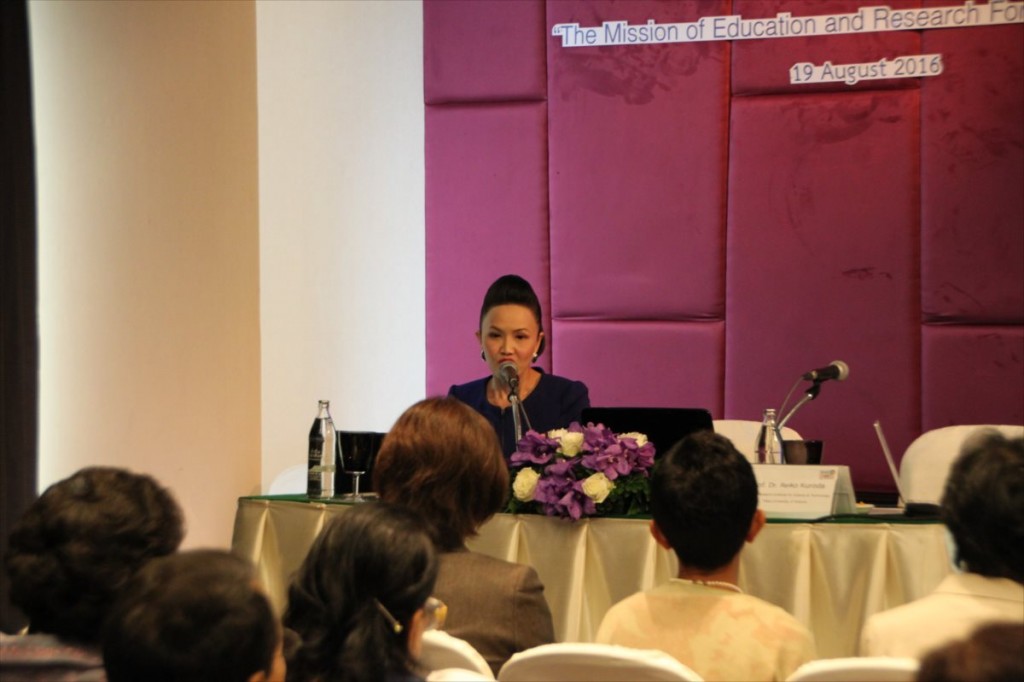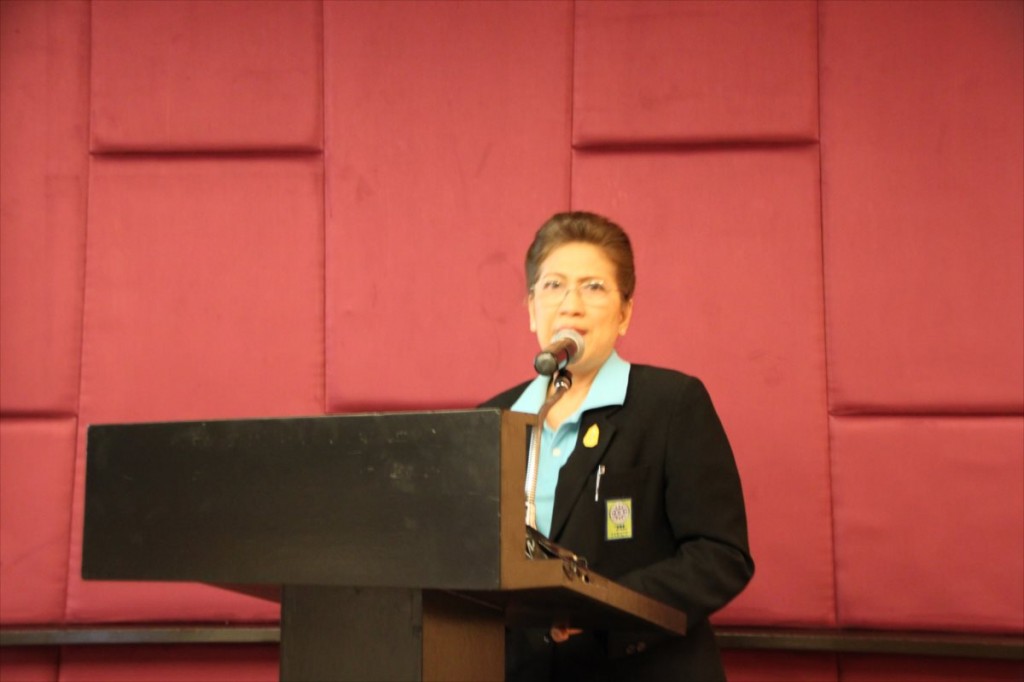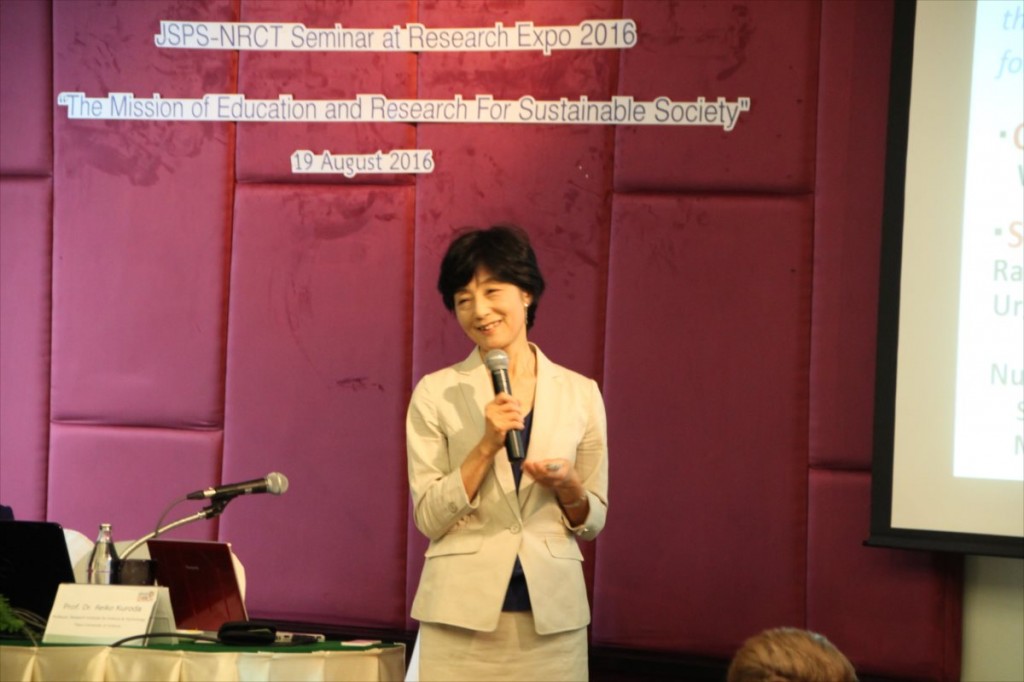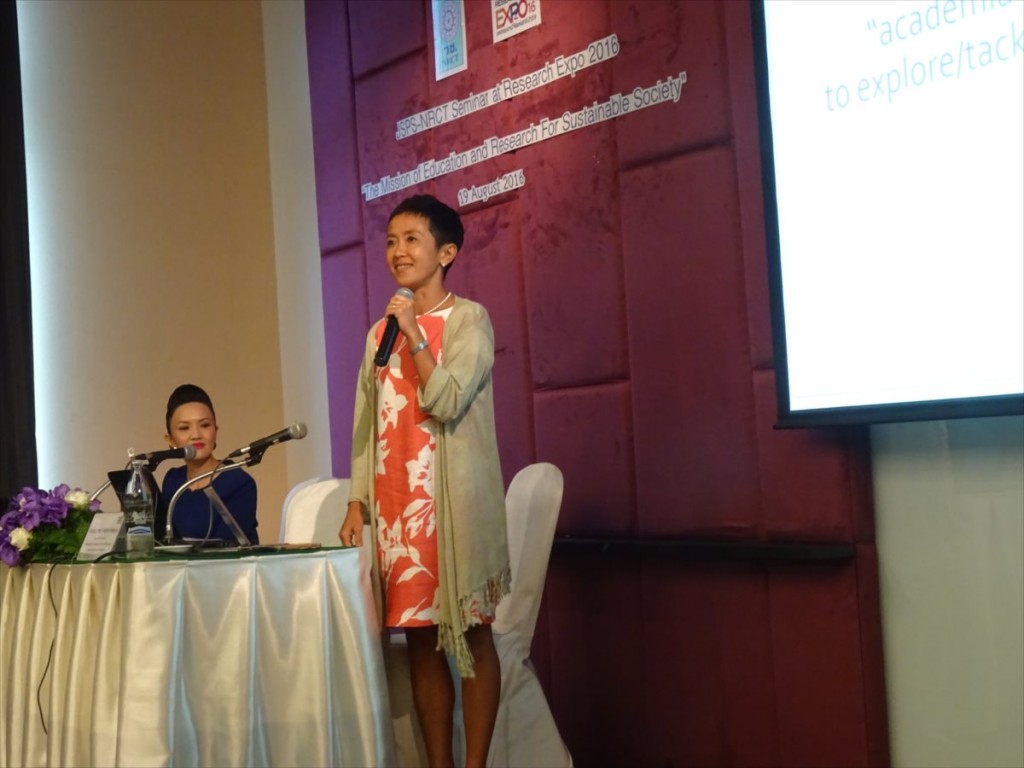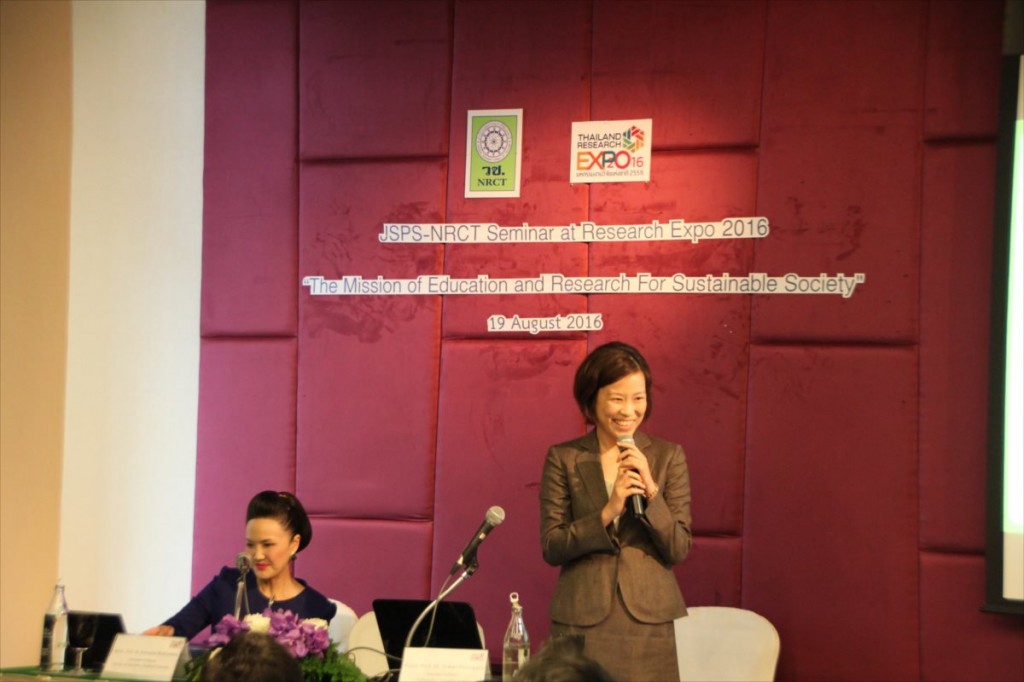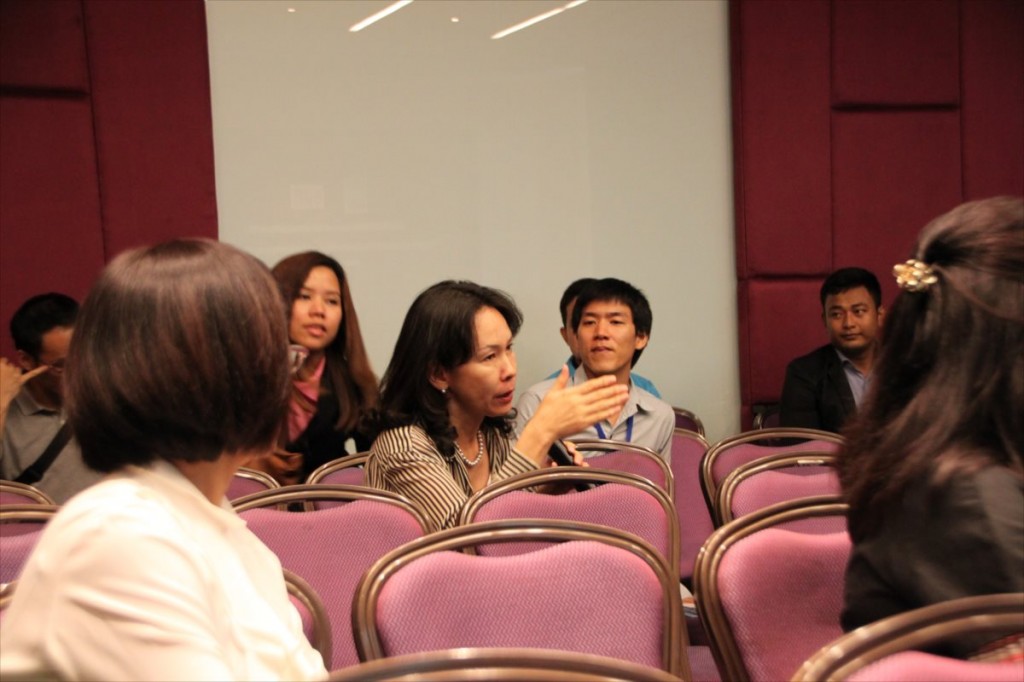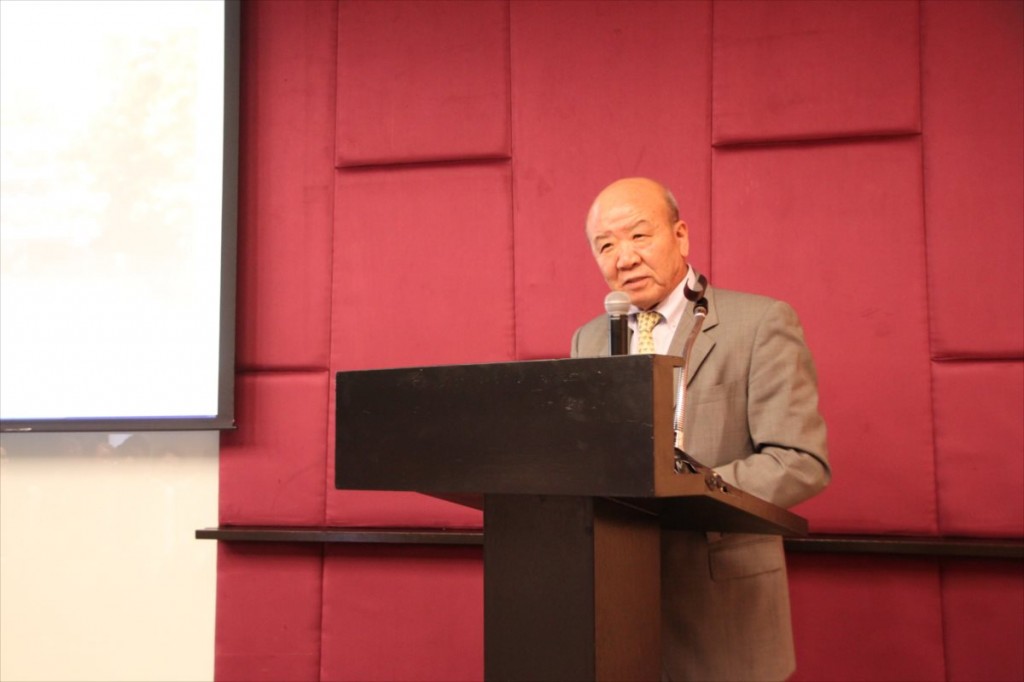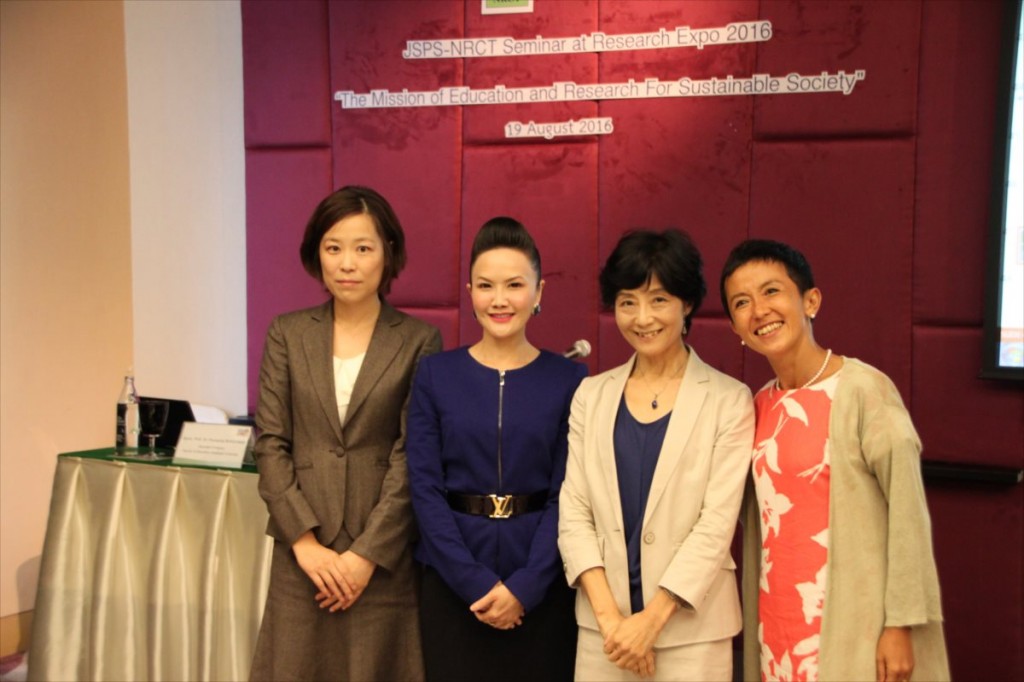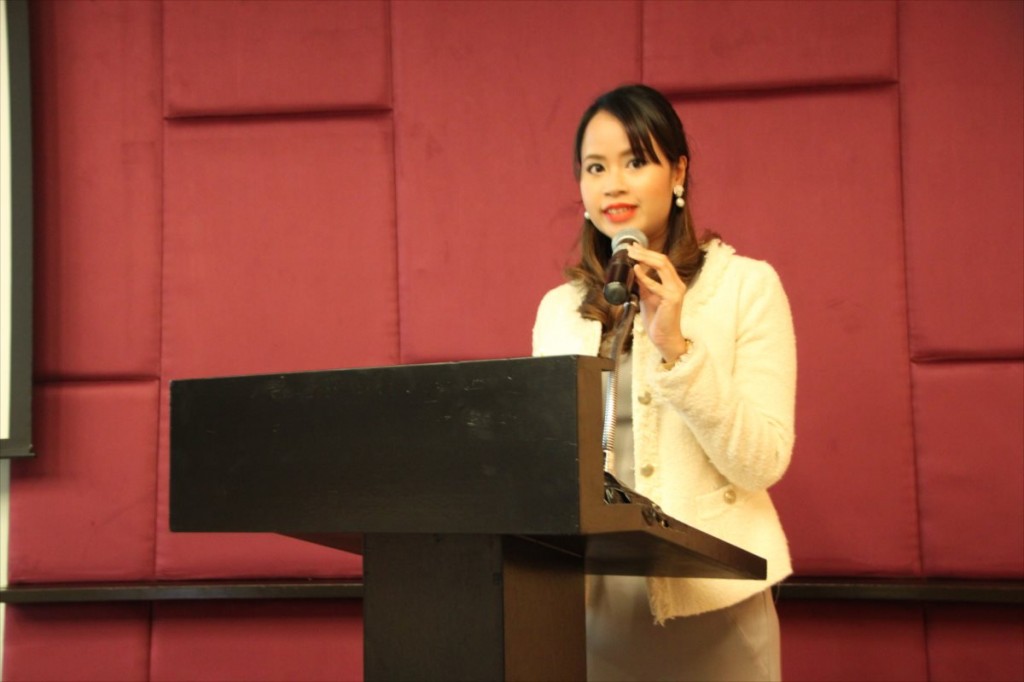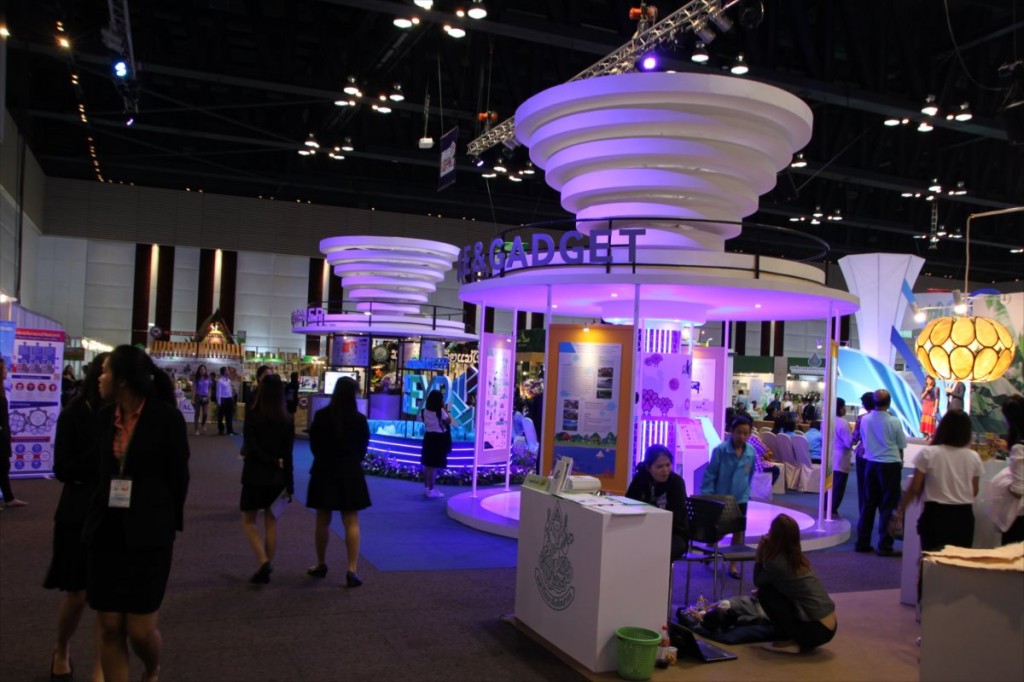On August 19, 2016, JSPS Bangkok Office organized “JSPS-NRCT Seminar” as a part of the Thailand Research Expo 2016, sponsored by National Research Council of Thailand (NRCT).
The Expo is an annual academic event organized by NRCT, where many organizations set up their own booth, and where scientific seminars are also held by both domestic and overseas researchers. JSPS Bangkok Office has co-hosted seminars with NRCT and invited Japanese researchers since its inception in 2009. This year, we set the theme as “The Mission of Education and Research for Sustainable Society”, which is based on the final document adopted in the UN Summit Conference on Social Development held in 2015 “Transforming our world: the 2030 Agenda for Sustainable Development”, and also invited three female speakers, Prof. Dr. Reiko Kuroda from Tokyo University of Science, Assoc. Prof. Momo Waguri from Fukuoka Women’s University and Assist. Prof. Dr. Yukari Fuchigami from Osaka University.
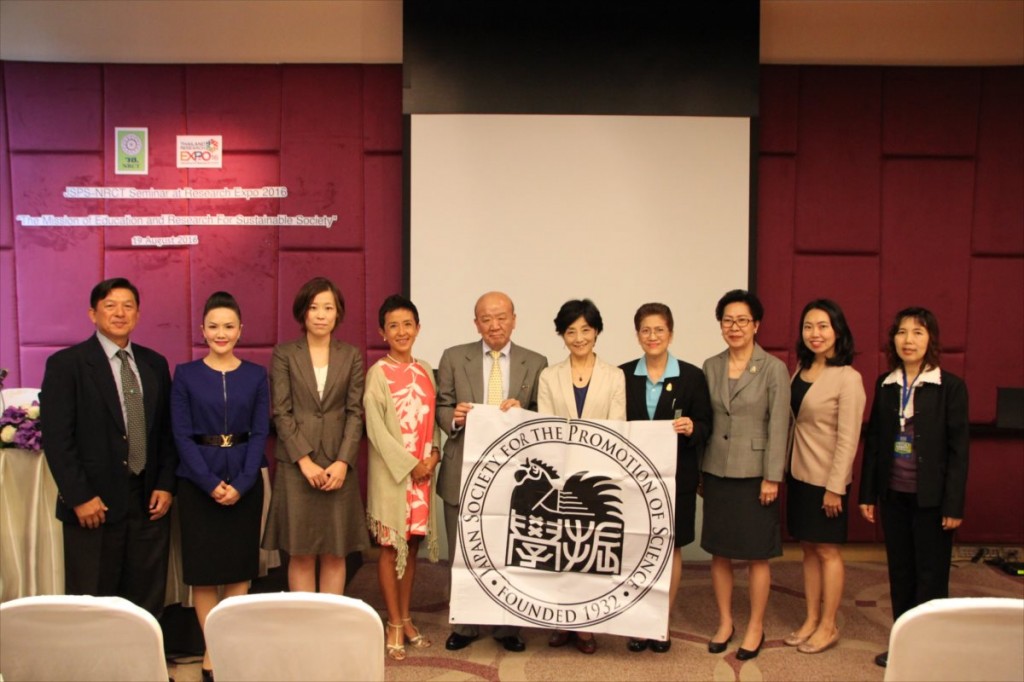
In addition, Assoc. Prof. Dr. Prompilai Buasuwan from Kasetsart University moderated the seminar. Therefore, the speakers and the moderator in this seminar were all women.
In the opening ceremony, Ms. Yossavadee Ungvichian, Senior Advisor of NRCT, delivered welcome remarks.
Prof. Dr. Kuroda made the first presentation entitled “The Mission of Education and Research for Sustainable Society” that was same as the seminar’s theme. Prof. Dr. Kuroda, who received L’Oréal-UNESCO Awards for Women in Science in 2013, outstandingly works as a scientist and also serves as a committee of The Scientific Advisory Board of the United Nations. In this seminar, Prof. Dr. Kuroda talked about her research in “Chirality” which means left-right asymmetry and her enthusiastic activities to link “Science” and ”Society”. Prof. Dr. Kuroda clearly explained with familiar examples that Chirality appears from micro- to macro-levels in both living and non-living things. In addition, Prof. Dr. Kuroda talked about the importance of basic research, saying that how outcome produced by her own and other scientists’ daily research can help society development
The second speaker, Assoc. Prof. Waguri made a presentation, entitled “Experiential Learning and Japanese Higher Education: Nurturing Reflectivity, Nurturing Global Citizens”, about Japanese higher education and Academia’s roles. The presentation also included discussion among participants and a short-movie that students of Fukuoka Women’s University conducted field-study on “development” in Sri Lanka. Though it is the fact that many students do not understand what they want to learn, the participants in the field-study overcome several difficulties caused by language barrier and cultural gap, and then their attitude and interest had actively changed. Assoc. Prof. Waguri mentioned with the movie that it was important for universities to organizationally work so that students can nurture their reflectivity.
The last speaker, Assist. Prof. Dr. Fuchigami delivered a presentation entitled “Sustainable Management of Natural Resource Use: The Coexistence of Conservation, Economic Activity and Regionality”. Dr. Fuchigami talked about the difficulty of using sustainable natural resources, with subjects of her study including forest management in Japan, analysis of bio-cokes and traditional use of natural resource. Dr. Fuchigami explained with survey research she have done so far that it was difficult and necessary to properly solve the problems such as environmental conservation, economic activity and affection for local area. Dr. Fuchigami also told that eco-tourism, which is regarded as good for environmental conservation, actually has some influence on environment because of emergence of business from outside and large-scaled population migration. Dr. Fuchigami added that it is necessary for researches to cooperate each other from several viewpoints in order to find the best solution for sustainable society.
In the Q&A session, participants asked questions, and one participant said that three presentations enabled for him to easily understand from the seminar’s concept to actual research.
Last of all, Prof. Yamashita Kuniaki, Director of JSPS Bangkok Office, gave thanks to three female speakers and the moderator, and his comment that he wished to strengthen further cooperation between both countries and boost the event with NRCT toward next year, 130th anniversary of friendship between Japan and Thailand concluded in the seminar.
The seminar’s program is available here.








